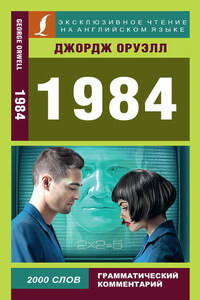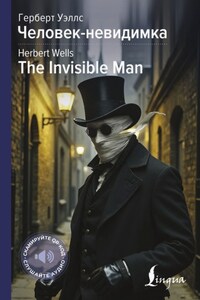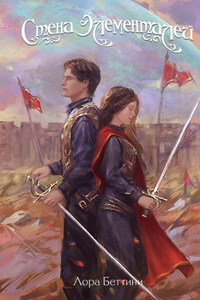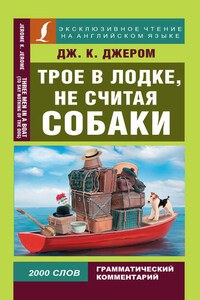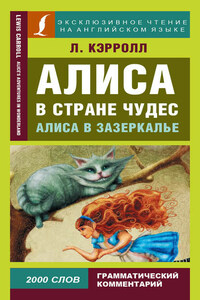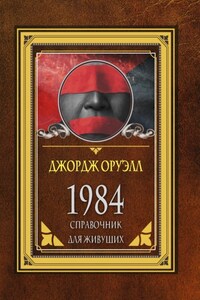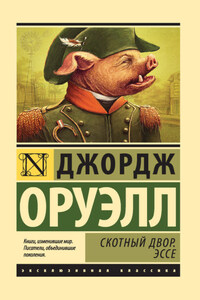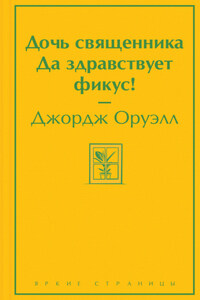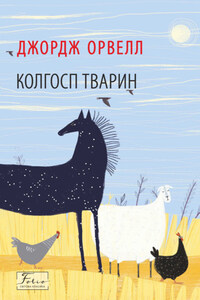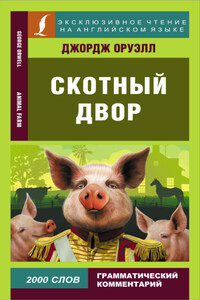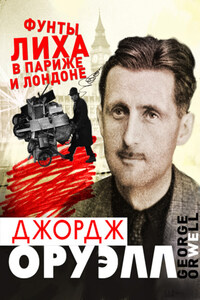It was a bright cold day in April, and the clocks were striking thirteen. Winston Smith, his chin nuzzled into his breast in an effort to escape the vile wind, slipped quickly through the glass doors of Victory Mansions, though not quickly enough to prevent a swirl of dust from entering along with him.
The hallway smelt of boiled cabbage and old rag mats. At one end of it a coloured poster, too large for indoor display, had been tacked to the wall. It depicted simply an enormous face: the face of a man of about forty-five, with a heavy black moustache. Winston made for the stairs. It was no use trying the lift. The electric current was cut off during daylight hours. It was part of the economy drive in preparation for Hate Week. The flat was seven flights up, and Winston, who was thirty-nine and had a varicose ulcer above his right ankle, went slowly, resting several times on the way. On each landing, opposite the lift-shaft, the poster with the enormous face gazed from the wall. BIG BROTHER IS WATCHING YOU, ran the caption beneath it.
Inside the flat a voice was reading out a list of figures which had something to do with the production of pig-iron. The voice came from an oblong metal plaque which formed part of the surface of the wall. Winston turned a switch and the voice became quieter, though the words were still distinguishable. The telescreen could be dimmed, but there was no way of shutting it off completely. He moved over to the window. His figure was small, emphasized by the blue overalls which were the uniform of the party. His hair was very fair, his face naturally sanguine, his skin roughened by coarse soap and blunt razor blades and the cold of the winter that had just ended.
Outside, the world looked cold. The sun was shining and the sky was a harsh blue colour, but there seemed to be no colour in anything, except the posters that were plastered everywhere. The face with a moustache gazed down from every corner. Down at street level one of the posters, torn at one corner, flapped in the wind, alternately covering and uncovering the single word INGSOC. In the far distance a helicopter hovered between the roofs. It was the police patrol, looking into people’s windows. The patrols did not matter, however. Only the Thought Police mattered.
Behind Winston’s back the voice from the telescreen was still talking about pig-iron and the overfulfilment of the Ninth Three-Year Plan. The telescreen received and transmitted simultaneously. Any sound that Winston made, above the level of a very low whisper, would be picked up by it. Moreover, so long as he remained within the field of vision of it, he could be seen as well as heard. There was of course no way of knowing whether you were being watched at any given moment. How often the Thought Police plugged in on any individual wire was guesswork. It was even possible that they watched everybody all the time. But at any rate they could plug in your wire whenever they wanted to. You had to live in the assumption that every sound you made was heard, and, except in darkness, every movement scrutinized.
Winston kept his back turned to the telescreen. It was safer. A kilometre away the Ministry of Truth, his place of work, towered above the grimy landscape. This, he thought with distaste—this was London, chief city of Airstrip One, itself the third most populous of the provinces of Oceania. He tried to squeeze out some childhood memory that should tell him whether London had always been quite like this. Were there always these vistas of rotting nineteenth-century houses? And the bombed sites with heaps of rubble; and the places where the bombs had cleared a larger patch and there had sprung up sordid colonies of wooden shelters? But it was no use, he could not remember.
The Ministry of Truth—Minitrue[1], in Newspeak [2](Newspeak was the official language of Oceania)—was startlingly different from any other object in sight. It was an enormous pyramidal structure of glittering white concrete, soaring up, terrace after terrace, 300 metres into the air. From where Winston stood it was just possible to read, picked out on its white face, the three slogans of the Party:
WAR IS PEACE
FREEDOM IS SLAVERY
IGNORANCE IS STRENGTH
The Ministry of Truth contained three thousand rooms above ground level, and corresponding ramifications below. Scattered about London there were just three other buildings of similar appearance and size. So completely did they dwarf the surrounding architecture that from the roof of Victory Mansions you could see all four of them simultaneously. They were the homes of the four Ministries between which the entire apparatus of government was divided. The Ministry of Truth, which concerned itself with news, entertainment, education, and the fine arts. The Ministry of Peace, which concerned itself with war. The Ministry of Love, which maintained law and order. And the Ministry of Plenty, which was responsible for economic affairs. Their names, in Newspeak: Minitrue,
